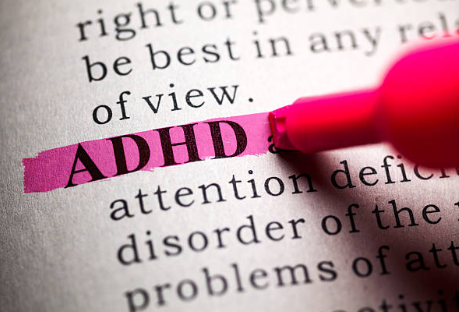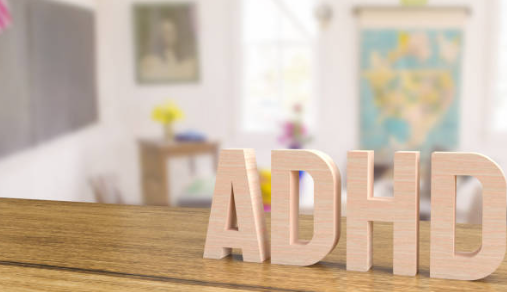Motivation for People with ADHD
If you’re suffering from ADHD, it’s important to understand the causes of your lack of motivation and find out how to overcome them.

Selfpause Affirmation App
Download the app to get 1,000’s of affirmation meditations and everything you need to write, record and listen to your own.
There are some reasons why people with ADHD may find it difficult to motivate themselves. These factors include dopamine deficiency, executive function deficits, and financial and time pressures. Fortunately, there are ways to deal with these challenges and find increased motivation.
Dopamine insufficiency

Dopamine is an important neurotransmitter, and there are several reasons that dopamine deficiency can lead to a range of symptoms. These include decreased enjoyment in previously enjoyable experiences, depression, low sex drive, trouble sleeping, muscle cramps, and decreased balance. If you think that you may have low dopamine levels, speak with your healthcare provider. He or she can recommend tests to determine the exact cause.
A lack of dopamine is associated with symptoms of ADHD. Dopamine is a neurotransmitter that regulates our feelings of reward and pleasure. When levels of dopamine are low, we become distracted and disengaged. In order to combat these symptoms, it is important to find ways to boost dopamine levels and create routines that work for us.
Dopamine is produced in the brain and the adrenal glands. It belongs to a group of neurotransmitters called “catecholamines,” which share a common chemical structure and are involved in the body’s response to stress. The brain uses different pathways of dopamine to regulate different physiological processes. One of these pathways, called the dopamine-reward pathway, has been associated with ADHD. When a person experiences a reward, dopamine is released and drives them to repeat actions that led to that reward.
Although some people believe that dopamine is not the main cause of ADHD, it remains a fundamental cause. Some researchers think that it may be structural differences in the brain that are the most important cause of the disorder. These differences may provide a basis for developing future treatments.
Executive function deficits

In a recent study, researchers examined motivational processes in students with ADHD and executive function deficits. This group showed decreased self-motivation and an increased need for external stimuli to maintain motivation. These findings raise questions about whether or not executive function is a core deficit in ADHD.
Executive function deficits can significantly impair the ability to initiate tasks and to sustain effort for long periods of time. This can result in a feeling of paralysis. While people with ADHD are often good at making quick decisions in the moment, they struggle to plan ahead and organize large amounts of information. As a result, they may be overwhelmed by too much information and procrastinate, which can ultimately lead to decreased productivity.
When dealing with a child with ADHD, it’s crucial to understand how executive function develops over time. Self-awareness usually begins to develop around age two, while planning and problem solving should be fully developed by age 30. However, people with ADHD often lag behind their peers by at least 30 to 40 percent, making them appear and act younger than their age.
Other research has linked executive function deficits to decreased motivation. Slusarek et al. (2001) found that children with ADHD were less responsive to reinforcement than typically-developing children. This suggests that the lack of motivation in children with ADHD is a symptom of an executive function deficit, and may be the cause of their inability to perform executive tasks at optimal levels.
Time pressure

Adults with ADHD often struggle with time pressure and motivation. They often feel like they are stuck on a never-ending merry-go-round of frustration. Thankfully, there are some ways to improve time pressure and motivation for people with ADHD. The key is to focus on the task at hand.
The first step is to understand your ADHD symptoms. If you experience difficulty completing important tasks, you should seek help from a medical professional. In addition to learning about your ADHD symptoms, you should also explore the underlying cause of the problem. Understanding ADHD symptoms is crucial in making the right lifestyle and health choices. By seeking treatment for ADHD, you can improve your life.
Another key to improving time pressure and motivation with ADHD is to improve executive functioning skills. The executive function is responsible for organizing tasks, starting them, and maintaining effort on a task. Without executive function, people with ADHD can become overwhelmed with information and lack motivation. This can cause procrastination, avoidance, and decreased productivity.
While time pressure can be a major challenge for people with ADHD, it is essential to remember that the brain doesn’t always respond well to competition. In fact, for some people with ADHD, competing against others can grind the brain to a halt. Even if the motivation is short-lived, it’s important to make time for breaks to keep your energy levels up.
Financial pressure

Financial pressure can be a good motivator for people with ADHD. It puts them on the spot and holds them accountable. It can also prevent them from putting off important tasks and obligations. It’s the same premise behind late fees and cancellation policies. However, financial pressure isn’t as powerful a motivator as reward. This is because the ADHD brain doesn’t respond well to punishment. However, when it comes to completing important tasks, financial pressure can kick the ADHD brain into high gear.
A recent study by the University of Groningen examined financial decision-making patterns in people with ADHD and those without. The researchers found that people with ADHD tended to use spontaneous decision-making more than people without ADHD. In addition, they were more likely to make impulsive purchases.
The use of financial pressure as a motivator in ADHD has been widely studied. This type of pressure is often associated with negative emotions and a tendency to avoid waiting. This negative emotion results in a preference for small, immediate rewards. It is important to consider whether this type of pressure has any effect on the behaviors of people with ADHD.
Those with ADHD can still be successful in the workforce. The key is to see their ADHD traits as assets, and to choose jobs that make the most of their unique qualities and interests.
Interest deficit
Children with ADHD may be at risk for developing low levels of motivation. This deficit may be part of the core pathology of ADHD. These findings support the importance of enhancing motivation, and incorporating more frequent rewards and reinforcement. Children with ADHD may also benefit from breaking up difficult tasks into smaller stages to reduce the complexity.
A lack of interest can also lead to low levels of motivation. Many ADHDers perform on interest-based scales, and the absence of interest in a task can make a child feel unmotivated and sluggish. Boredom is a common cause of low levels of motivation, so it is essential to find a way to inject interest, novelty, challenge, and urgency into a task.
Homeostasis

Homeostasis is one of the most fundamental concepts to understand when it comes to motivation for people with ADHD. It is a powerful biological drive that encourages us to conserve energy and stay in a constant state of balance. We are hard-wired to follow this urge because it is what our ancestors did. In their caves, food was scarce and they had to hunt animals to survive. There was no way to know for certain when food would be available. That’s why maintaining homeostasis made sense.
One of the best ways to achieve homeostasis is to reward yourself for accomplishing tasks. This simple approach can help you remain focused and motivated on a daily basis. In addition, a good reward can also help you remain on task and enjoy the process. People with ADHD can use rewards to help themselves achieve goals and enjoy life.
One of the hardest aspects of ADHD is the inconsistent motivation people with ADHD experience. They can show great focus and motivation for certain tasks, but not at all for others. This may leave them feeling as though they don’t have enough willpower. While this may seem like a problem of willpower, it’s really a problem with the chemistry of the brain and how it perceives things.
Interestingly, genetic linkage studies have shown that genes play an important role in ADHD etiology. However, there is substantial disagreement as to which regions of chromosomes are connected with ADHD. In the validation subset, no single gene was linked to ADHD, but some regions of chromosome 16 were linked to the condition.
Our Top FAQ's
Some strategies for maintaining motivation for people with ADHD may include setting clear, specific, and achievable goals; breaking tasks down into smaller, more manageable chunks; finding ways to make tasks more enjoyable or meaningful; seeking out external motivation (such as rewards or accountability from others); and using tools such as calendars, timers, and alarms to help stay organized and on track.
To overcome procrastination and increase motivation, people with ADHD may benefit from identifying the underlying causes of their procrastination (such as lack of interest in the task, difficulty starting, or difficulty with time management). Some strategies for addressing procrastination may include setting deadlines, creating a structured routine or schedule, finding ways to make tasks more engaging or rewarding, seeking support from friends, family, or a therapist, and using tools such as habit tracking apps or productivity software.
To set and achieve goals effectively, individuals with ADHD may find it helpful to set clear, specific, and measurable goals that are aligned with their values and interests. It may also be helpful to break goals down into smaller, more manageable steps, and to regularly review and adjust goals as needed.
To manage time and increase motivation and productivity, people with ADHD may benefit from using tools such as calendars, to-do lists, and alarms to stay organized and on track. It may also be helpful to set aside dedicated time for important tasks, and to find ways to minimize distractions and interruptions. Additionally, finding the right balance between structure and flexibility in one’s daily routine can help support motivation and success.
Finding the right balance between structure and flexibility in one’s daily routine can be challenging for people with ADHD, as too much structure can be overwhelming and too little can be overwhelming. Some strategies for finding this balance may include creating a routine that includes both structured and flexible activities, setting clear boundaries around work and leisure time, and finding ways to incorporate activities that promote relaxation and self-care into one’s routine. It may also be helpful to enlist the support of friends, family, or a therapist to help identify and address challenges in maintaining a healthy balance.
